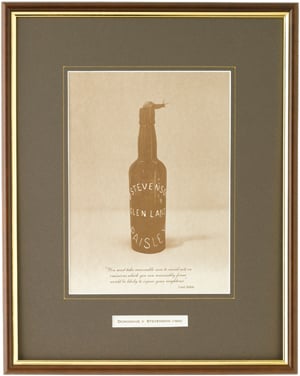Famous Court Cases: negligence

Famous Law Cases- We all take for granted most of the time that the law is there to serve and protect us. Through the last several hundred years laws have been developed in the Western World to protect members of society from hurting each other. In the event of course that we hurt each other accidentally laws are there to protect us and ensure we have recourse to either restorative or compensatory damages that have been caused to us today and in the future. Case law has become fundamental in how individual cases are treated. Cases set precedents so that a case with a given set of similar facts are treated equally before the law.
By the way this is my summary of some of the first things I learned studying Law at University. The course unit was call legal institutions and method. This course unit conducted and taught to me in semester 2 2008 by legendary Lecturers Alistair Macadam and John Pike. Both lecturers have published extensively in Australia. They are well known in Australia specially Queensland having taught many of the legal luminaries in the state.
One of the most Famous of all Law cases relates to the law of negligence and forms the legal concept of duty of care that you or I have to ourselves or our neighbours. Thwe law of negligence and the development of a duty of care to one neighbour was developed from the 'snail in the bottle' case.
Donoghue v Stevenson [1932] AC 562 was a decision of the House of Lords that established the modern form of the tort of negligence in English and Welsh law, and delict in Scots law, by setting out general principles whereby one person would owe another person a duty of care.
Facts
On the evening of Sunday 26 August 1928 May Donoghue, boarded a tram in Glasgow for the journey to Paisley. Later , she and a friend took their seats in the Wellmeadow Café in the town's Wellmeadow Place. They were approached by the café owner Minchella, and Donoghue's friend ordered and paid for a pear and ice and an ice-cream drink. The owner brought the order and poured part of an opaque bottle of ginger beer into a tumbler containing ice cream. Donoghue drank some of the contents and her friend lifted the bottle to pour the remainder of the ginger beer into the tumbler. It was claimed that the remains of a snail in a state of decomposition dropped out of the bottle into the tumbler. Donoghue later complained of stomach pain and her doctor diagnosed her as having gastroenteritis and being in a state of severe shock.
On 9 April 1929, Mary Donoghue brought an action against David Stevenson, an aerated water manufacturer in Paisley, in which she claimed £500 as damages for injuries sustained by her through drinking ginger beer which had been manufactured by him. The case was settled in court, and the manufacturer was held liable for damages as he owed a duty of care to the ultimate consumer- from that judgment onwards the particular caselaw has been founded and has been exercised through precedent.
- Famous Law Cases ~contracts~
advertisement for the incredible theraputic powers of carbolic smoke balls. Carlill vs Carbolic Smoke Ball Co., is probably the most famous case in English contract law. The facts were thus: In 1892 The...
This is much more than just a landmark case. It means that when a shopkeeper sells you something he has a duty of care that he is selling you something that should not be defective nor cause you injury or illness. Similarly we all have a duty of care to our neigh. The neighbour principle means that we should nor cannot due something that may cause harm to out neighbour or his property lest we be sue for negligence...
Lord Atkins Judgment
"There must be, and is, some general conception of relations giving rise to a duty of care, of which the particular cases found in the books are but instances. ...The rule that you are to love your neighbour becomes in law you must not injure your neighbour; and the lawyer's question: Who is my neighbour? receives a restricted reply. You must take reasonable care to avoid acts or omissions which you can reasonably foresee would be likely to injure your neighbour. Who, then, in law, is my neighbour? The answer seems to be - persons who are so closely and directly affected by my act that I ought reasonably to have them in contemplation as being so affected when I am directing my mind to the acts or omissions that are called in question . . . a manufacturer of products, which he sells in such a form as to show that he intends them to reach the ultimate consumer in the form in which they left him with no reasonable possibility of intermediate examination, and with knowledge that the absence of reasonable care in the preparation or putting up of products will result in an injury to the consumer's life or property, owes a duty to the consumer to take that reasonable care."





